
Iain Dale 10am - 1pm
19 May 2021, 19:42 | Updated: 19 May 2021, 19:46
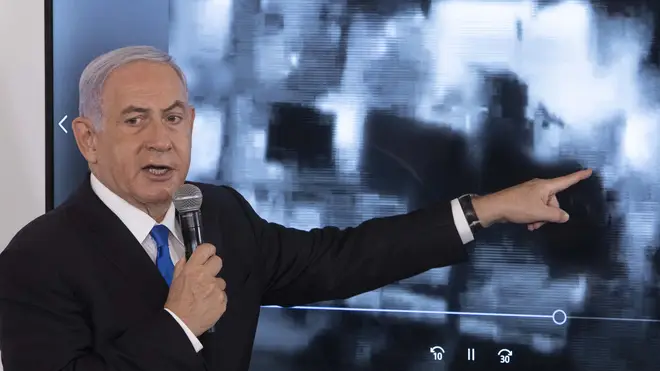
Israel has rejected calls from the US for a ceasefire and vowed to continue with its military offensive in the Gaza Strip.
Prime Minister Benjamin Netanyahu pushed back against calls from US President Joe Biden for a "significant de-escalation" in the conflict, which has left hundreds dead - many of them civilians.
The Israeli PM's tough comments marked the first public rift between the close allies since fighting broke out last week.
After a visit to military headquarters on Tuesday, he said he "greatly appreciates the support of the American president" but declared Israel will push ahead "to return the calm and security to you, citizens of Israel".
READ MORE: Biden urges Israel to wind down Gaza offensive as international pressure grows
He said he is "determined to continue this operation until its aim is met".
Mr Biden had previously avoided pressing Israel more directly and publicly for a ceasefire with Gaza's
Hamas militant rulers but many in his own party and other nations have been pressing him to intervene.
In another sign of potential escalation, militants in Lebanon fired a barrage of rockets into northern Israel on Wednesday.
Egyptian negotiators have also been working to halt the fighting, with some of the country's top officials waiting for Israel's response to a ceasefire offer.
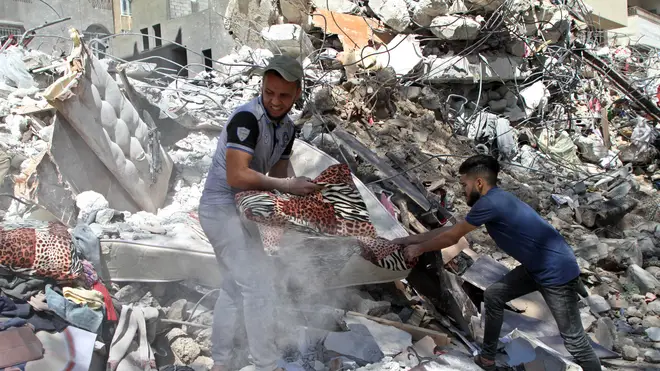
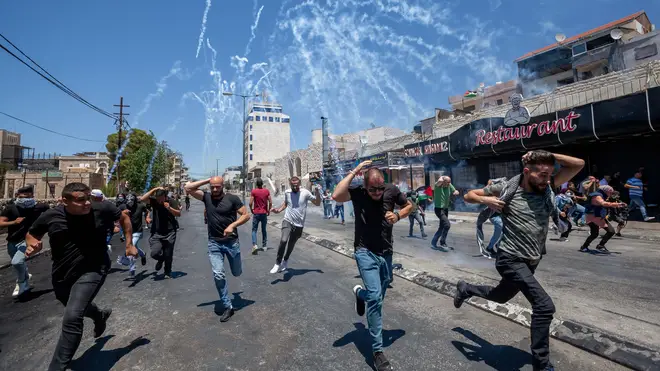
Meanwhile, German foreign minister Heiko Maas said he hoped to fly to Israel for talks on Thursday with Israelis and Palestinians.
Earlier in the day, the Israeli military said it was widening its strikes on militant targets in southern Gaza to blunt continuing rocket fire from Hamas.
At least nine people have been killed in the Gaza Strip on Wednesday so far, with further casualties expected overnight.
The current round of fighting between Israel and Hamas began on 10 May when the militant group fired long-range rockets towards Jerusalem after days of clashes between Palestinian protesters and Israeli police at the Al-Aqsa Mosque compound - a flashpoint site sacred to both Jews and Muslims.
READ MORE: Heavy bombing continues in Gaza as Israeli PM vows Hamas will pay 'heavy price'
Heavy-handed police tactics and the threatened eviction of dozens of Palestinian families by Jewish settlers had inflamed tensions.
Israel has pounded Gaza with hundreds of air strikes since, destroying many public buildings - including at least 18 hospitals and clinics - but insisted they are part of Hamas' infrastructure.
The militant group, among others, are claimed to be embedded in residential areas, where they have fired more than 3,700 rockets at Israeli cities.
At least 227 Palestinians have been killed so far, including 64 children and 38 women, with 1,620 people wounded, according to the Gaza Health Ministry.
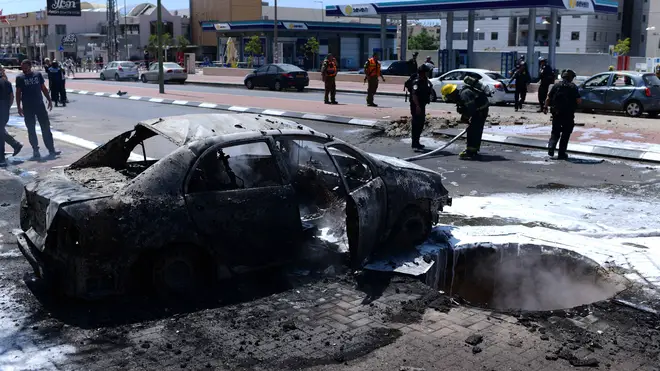
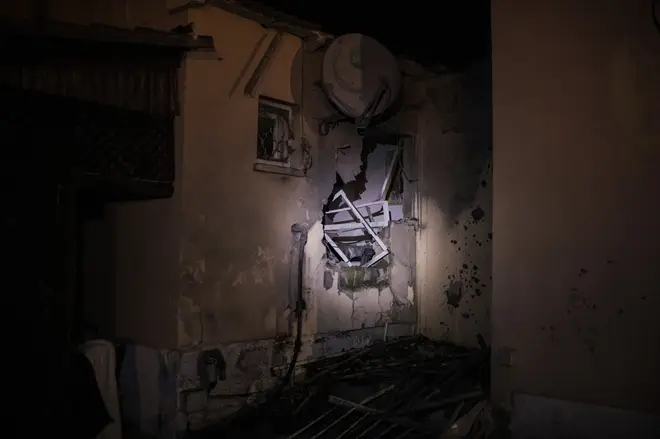
Hamas and Islamic Jihad say at least 20 of their fighters have been killed, while Israel says the number is at least 130.
Some 58,000 Palestinians have fled their homes.
Twelve people in Israel, including a five-year-old boy, a 16-year-old girl and a soldier, have been killed.
In the Gaza Strip, one air strike destroyed the home of 40 members of the al-Astal family in the southern town of Khan Younis.
Ahmed al-Astal, a university professor, described a scene of panic, with men, women and children racing out of the building after the first missile hit, with a second shortly after destroying the building entirely.
"Some of the women did not even have time to cover their hair with Muslim headscarves," he said.
He added: "We had just got down to the street, breathless, when the devastating bombardment came.
"They left nothing but destruction, the children's cries filling the street... This is happening, and there is no-one to help us. We ask God to help us."
The Israeli military said it struck a militant tunnel network around the towns of Khan Younis and Rafah, with 52 aircraft hitting 40 underground targets.
Since the fighting began, Gaza's infrastructure, already weakened by a 14-year blockade, has rapidly deteriorated.
Medical supplies, water and fuel for electricity are running low in the territory, on which Israel and Egypt imposed the blockade after Hamas seized power in 2007.